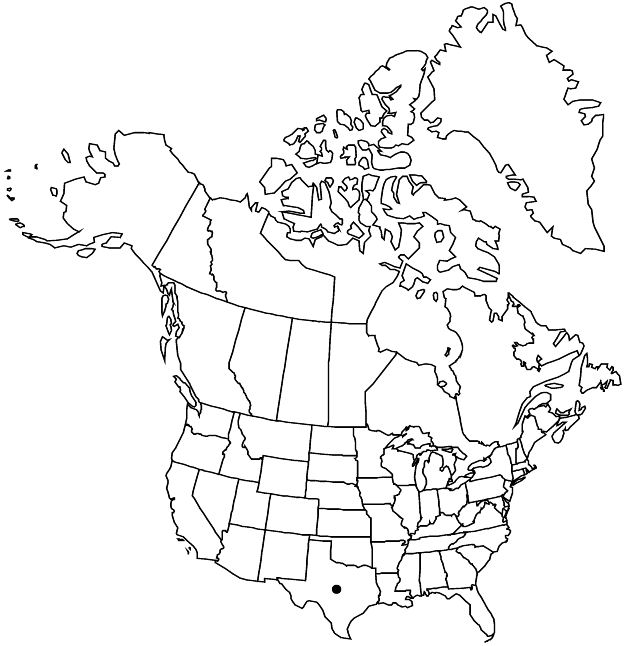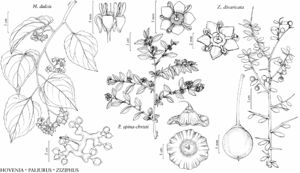Paliurus spina-christi
Gard. Dict. ed. 8, Paliurus no. 1. 1768.
Shrubs, 2–4 m, branchlets brownish pubescent, glabrescent. Stipular spines 2 per node, 1 straight, 1–2 cm, 1 shorter and recurved. Leaves: blade ovate to oblong-ovate or elliptic, 2–4 cm, herbaceous, base obtuse to cordate, often slightly oblique, margins shallowly and sometimes obscurely serrate or denticulate, apex obtuse, surfaces glabrous or abaxial slightly hairy along veins. Inflorescences 5–11-flowered. Samaras tan to brownish, glabrous; wing disciform, ± circular, perpendicular to fruit axis, thin, 1.5–3.5 cm diam., with fine radiating, dichotomizing, and anastomosing venation, margin entire, undulate. 2n = 24.
Phenology: Flowering spring.
Habitat: Floodplains, riparian scrub, open post oak woodlands, pastures.
Elevation: 150–400 m.
Distribution

Introduced; Tex., s Europe, also in sw, c Asia
Discussion
According to R. J. O’Kennon (1991), Paliurus spina-christi is naturalized in thicket-forming populations for about 25 km along the flood plains of the Pedernales River and two tributaries in Gillespie County; it is now documented from several locations downstream along the Pedernales in adjacent Blanco County. In this area, it apparently spread from hedgerows planted in the late 1880s along one of the tributaries. It is also documented as naturalized in open woods in Brazos County, perhaps escaping from plantings at Texas A&M University in College Station.
Selected References
None.
